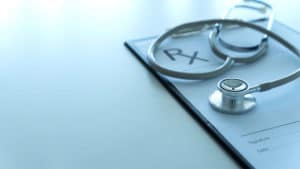What are the risks?
In 2013, the FDA increased the warning label requirements for statins, adding elevated risk of liver damage, memory loss, type 2 diabetes, and muscle weakness to the list. Acute kidney damage has also been seen, particularly in those taking higher dosages. When all available data is compiled, these drugs have been linked to a staggering 300 side effects, with increased cancer risk, immune suppression, and acidosis among the most alarming.
An endocrinologist from Brigham and Women's Hospital in Boston set out to examine the medical records of patients on statins, hoping to clear up some questions about possible confounding factors contributing to study outcomes pointing to statins as the cause of various complaints. Out of 100,000 people taking statins, 17% reported side effects, with muscle and joint pain and spasms being the most common. Digestive complaints were the second most common. About 30% of those patients had to stop taking them, at least temporarily, due to the side effects.
What is perhaps the most concerning of all, is the growing body of research showing the link between statin use and the worsening of coronary artery disease (CAD) and other factors related to heart disease, the very problem statins are supposed to help alleviate. Postmenopausal women have a significantly increased risk (48%) of developing type 2 diabetes when taking statins. Type 2 diabetes is a major risk factor for heart disease in and of itself. In addition, two well-designed studies published in the last few years concluded that statin use increased the occurrence and severity of calcified coronary plaque in those with no known CAD and in those who already had type 2 diabetes (compared with less frequent or non-statin users). Achieving low or optimal LDL levels through statin treatment did not improve coronary artery calcification findings and in fact evidence for the opposite was documented.
Why do statins cause side effects?
One of the main culprits linked to statin-induced adverse health effects is the depletion of Coenzyme Q10 (CoQ10) that occurs during treatment through the drug's mechanism of action. CoQ10 plays a critical role in heart health due to cardiac cells requiring 200 times more CoQ10 than skeletal muscle. The fatigue, cognitive dysfunction, and myopathy commonly experienced on statins are most likely due to this drug-induced nutrient depletion. A review article on statins published in Expert Review of Clinical Pharmacology proposed that the inhibition of vitamin K2 and selenium-containing proteins, as well as reduced mitochondrial function (energy production) are processes that can also help explain many of the problems, both mild and more severe, associated with statin drug treatment.
Do the benefits outweigh the risks?
Cholesterol in and of itself is not bad. In fact, we need cholesterol - for the health of our cell membranes, for synapse formation in the brain, and for the production of sex hormones, vitamin D, and bile acids (that aid in breakdown of dietary fat). With the evidence of increased CAD during statin use, despite resulting lowered total and LDL cholesterol levels, whether or not they are worth the risk has become hotly debated. Whether or not cholesterol levels are even as valuable for assessing heart disease risk as previously thought has also been called into question in recent years.
The widespread use of statins may be partially explained by the misleading use of relative risk to explain statins' successes in trials, as opposed to the more accurate actual risk. For example, a 30-40% relative decrease in heart attacks in the statin group of a study may be reported, when there is really only a 1% chance of individuals in this low-risk group suffering from a cardiac event (heart attack or stroke) during the study period. This results in an actual reduction of only 0.3%, meaning that only 3 out of 1,000 will see benefit. Explained another way, 9,997 individuals would need to be treated in order for one person to benefit and out of those, 300 will have side effects. This boils down to a 100:1 risk-to-benefit ratio, without even accounting for "silent" side effects that may occur over time and thus be under-reported or unreported, such as heart failure or the progression of diabetes.
An objective and analytical review of the available research on the topic shows no quality study that has proven that statins benefit those who only have elevated total or LDL cholesterol (but no other heart disease risk factors). Several leading experts in the field of functional medicine agree that the only time statin drug treatment appears to help more than it harms, based on the current research, is in those individuals with a genetic predisposition for hypercholesterolemia (that is non-responsive to lifestyle interventions) and possibly those who have previously suffered a heart attack or stroke.
Are there other options?
It is important to look at other heart disease markers before making a decision about the need for a statin. Fasting insulin levels, fasting glucose levels, waist circumference, and iron levels are all additional indicators of heart disease risk. Also, since hypothyroidism has been strongly associated with a poor lipid panel, testing thyroid function should also be considered. If you are already on a statin and want to reduce your risk of adverse effects, you may want to talk to your doctor about supplementing with CoQ10 or the reduced form, Ubiquinol.
Dietary and lifestyle changes are a powerful way to prevent and treat heart disease and associated risk factors. Good sleep hygiene, regular exercise, and quitting smoking can all help improve both heart health and overall health. Eating several servings of cold-water fish each week or taking a good quality fish oil supplement can improve lipid profiles and combat inflammation, which is linked with heart disease and many other health conditions. Dietary plant sterols and stanols, often found in fiber-rich foods such as whole grains, nuts, and legumes, can help reduce LDL cholesterol levels by blocking the uptake of "bad" cholesterol into the blood from the small intestine. In addition, optimizing your vitamin D levels may help prevent plaque in the arteries, as well as boost immunity.
These are just a few of the considerations and suggestions that can empower you to make an educated decision, along with your health care practitioner, regarding the use of statin drugs.
References
Cleveland Clinic. Plant Sterols and Stanols. Available at:
https://my.clevelandclinic.org/health/diseases_conditions/hic_Cholesterol/hic_Plant_Sterols_and_Stanols
Accessed on March 2, 2016.
Goodman, B and Cassoobhoy, A. Cholesterol & Triglycerides Health Center: More Docs Wonder If Statins Are Worth the Risks. Available at:
http://www.webmd.com/cholesterol-management/news/20140818/statins-side-effects-news
Accessed on March 2, 2016.
Mayo Clinic. Statins: Are these cholesterol-lowering drugs right for you? Available at:
http://www.mayoclinic.org/statins/art-20045772?pg=1
Accessed on March 2, 2016.
Mercola, J. Study Reveals Statins Not Very Effective or Safe. Available at:
http://articles.mercola.com/sites/articles/archive/2015/03/18/deception-statins-effectiveness.aspx
Accessed on March 2, 2016.
Mercola, J. Side Effects of Statins. Available at:
http://articles.mercola.com/sites/articles/archive/2013/04/17/statin-side-effects.aspx
Accessed on March 2, 2016.
Nakazato, R et al. Statin use and coronary artery plaque composition: Results from the International Multicenter CONFIRM Registry.Atherosclerosis. 2012 Nov; 225(1): 148-153.
Rizos, CV et al. Effects of Thyroid Dysfunction on Lipid Profile. Open Cardiovasc Med J. 2011; 5: 76-84.
Saremi, A et al. Progression of Vascular Calcification Is Increased With Statin Use in the Veterans Affairs Diabetes Trail (VADT). Diabetes Care. 2012 Nov; 35: 2390-92.


